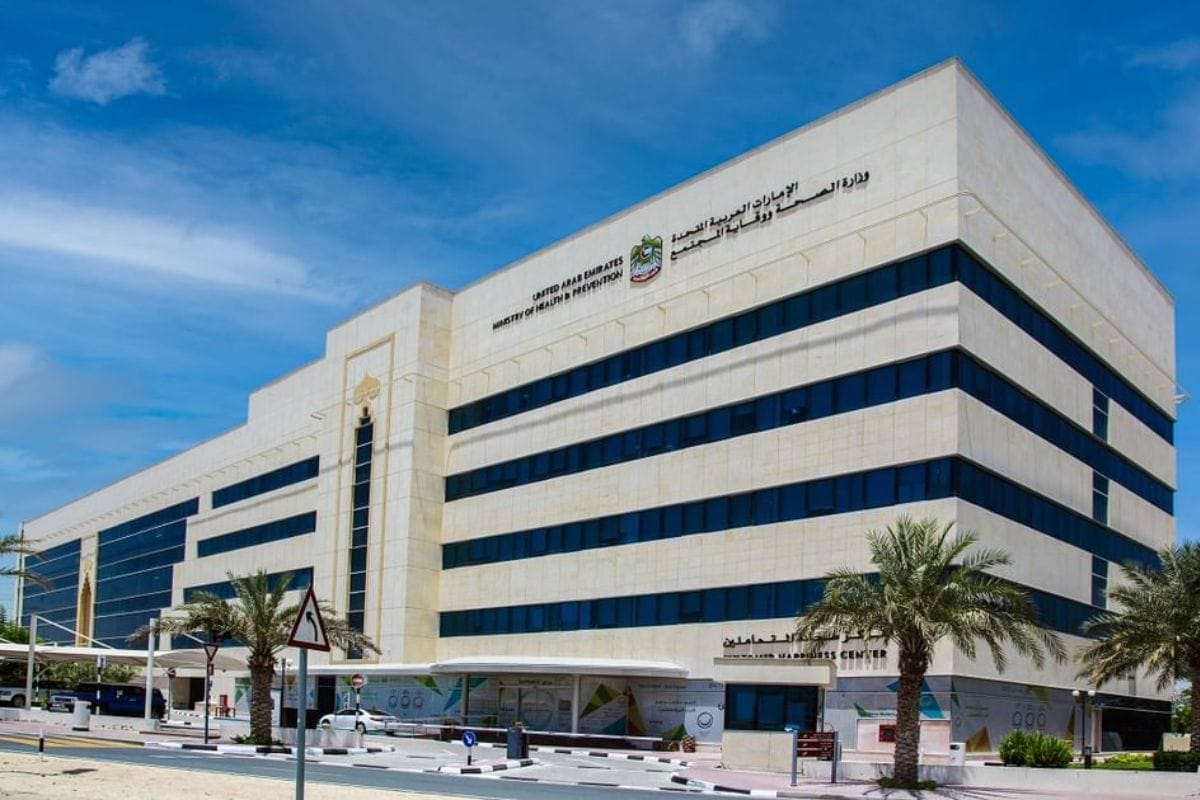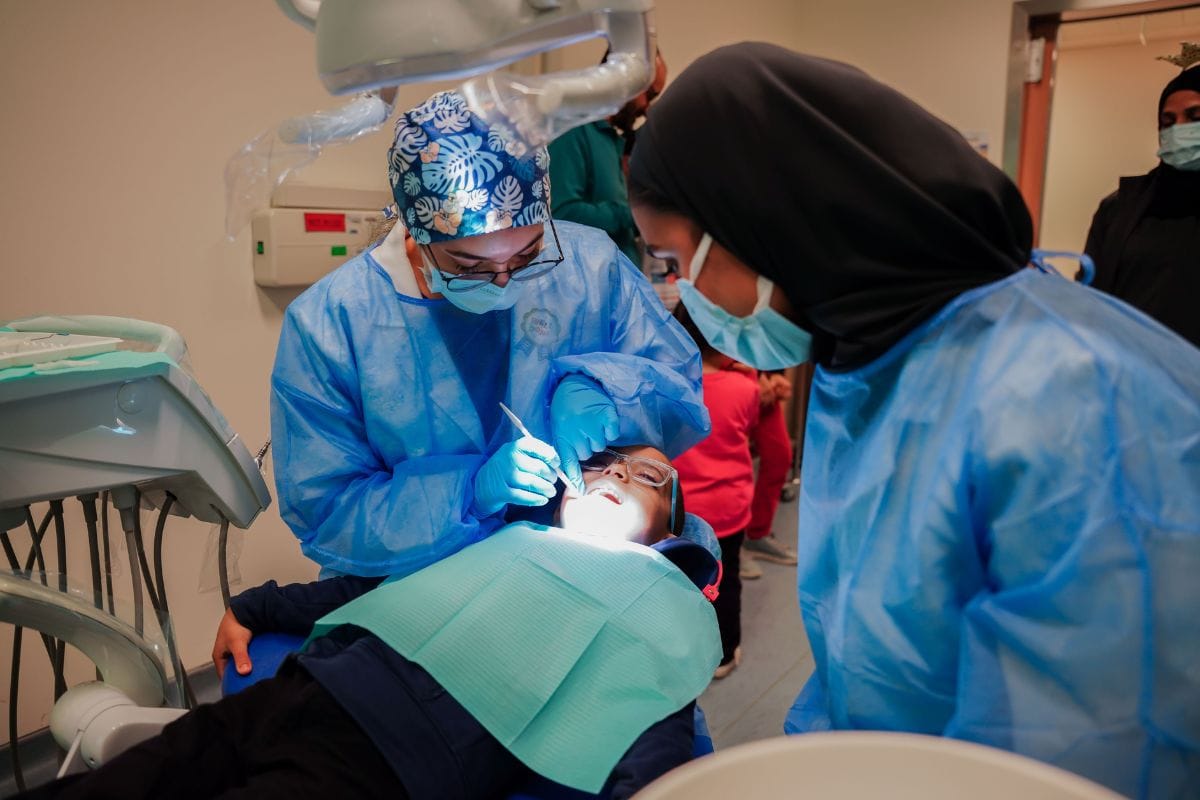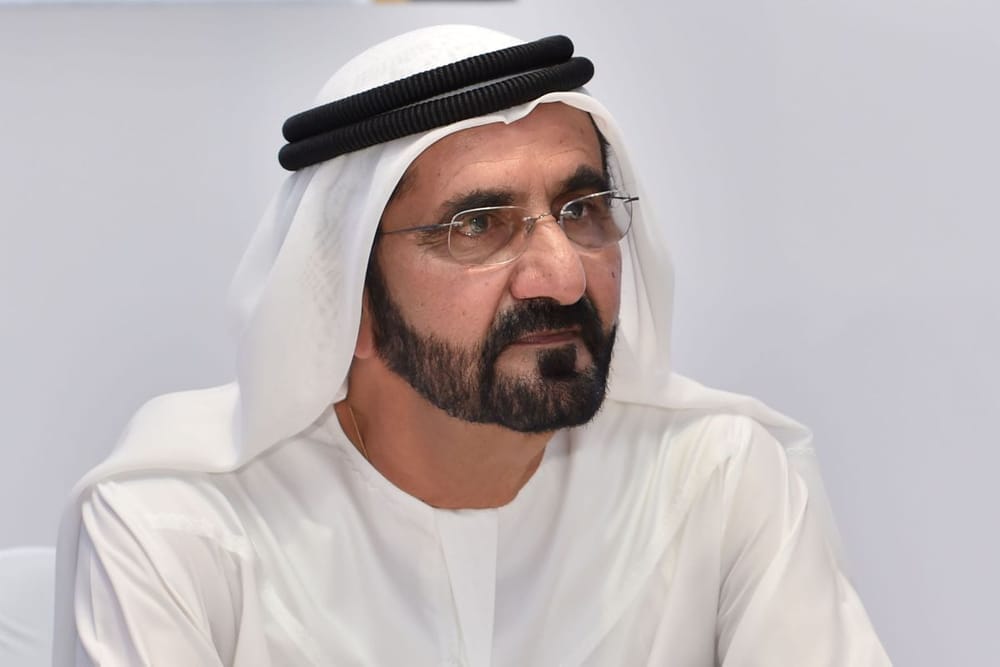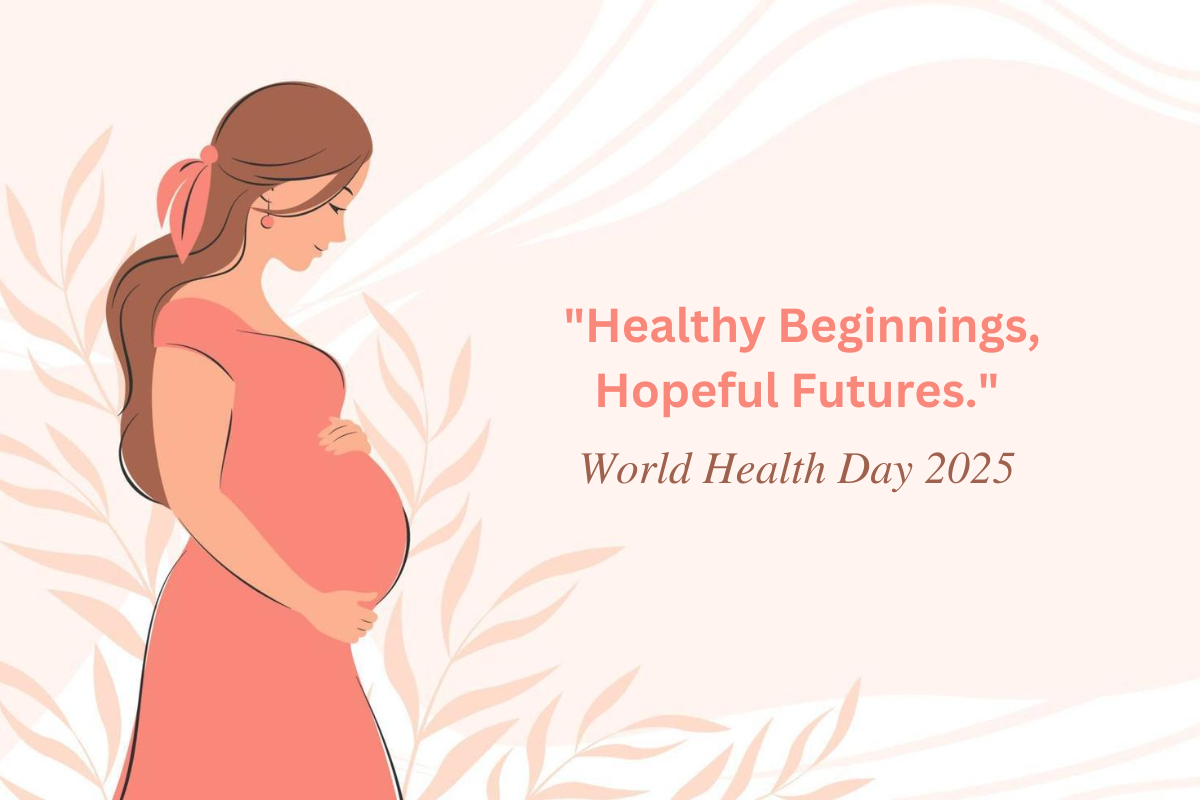A child’s first heartbeat doesn’t just mark the beginning of life—it quietly sets the rhythm for everything that follows. From the strength of their bones to the resilience of their mind, so much of who they will become begins to take shape long before they’re held in someone’s arms. For many, it’s easy to think health starts after birth—when the baby is weighed, checked, and swaddled. But what if we’ve been looking too late?
This year, World Health Day 2025 asks us to look earlier—to look inward and back to the very beginning. With the theme “Healthy beginnings, hopeful futures,” the global health conversation is shifting toward the womb, where the foundation of a person’s entire well-being quietly takes root. It’s a timely reminder that prenatal care is not a luxury or a checklist; it’s a human right. Yet every year, hundreds of thousands of women around the world still go through pregnancy without access to proper care. The World Health Organization estimates that over 287,000 maternal deaths occurred in 2020, many of them preventable. Even for those who survive childbirth, an estimated 1 in 3 women experience lasting health issues that often go unspoken and untreated.
But it isn’t just about survival. It’s about giving every baby the best chance before they even arrive. Can a mother’s nutrition shape her child’s future metabolism? Can her mental health affect the way her baby responds to stress years later? Science says yes—and it's time we listen.
In this article, we’ll take a closer look at how health truly begins before birth. We'll explore how maternal well-being—physical, emotional, and social—can shape a child’s lifelong health. We'll dive into real-world stories, scientific research, and what it means to nurture a future that hasn’t yet taken its first breath. Because if we want hopeful futures, we have to start with healthy beginnings.
The Science of Prenatal Development
Critical Stages of Fetal Growth
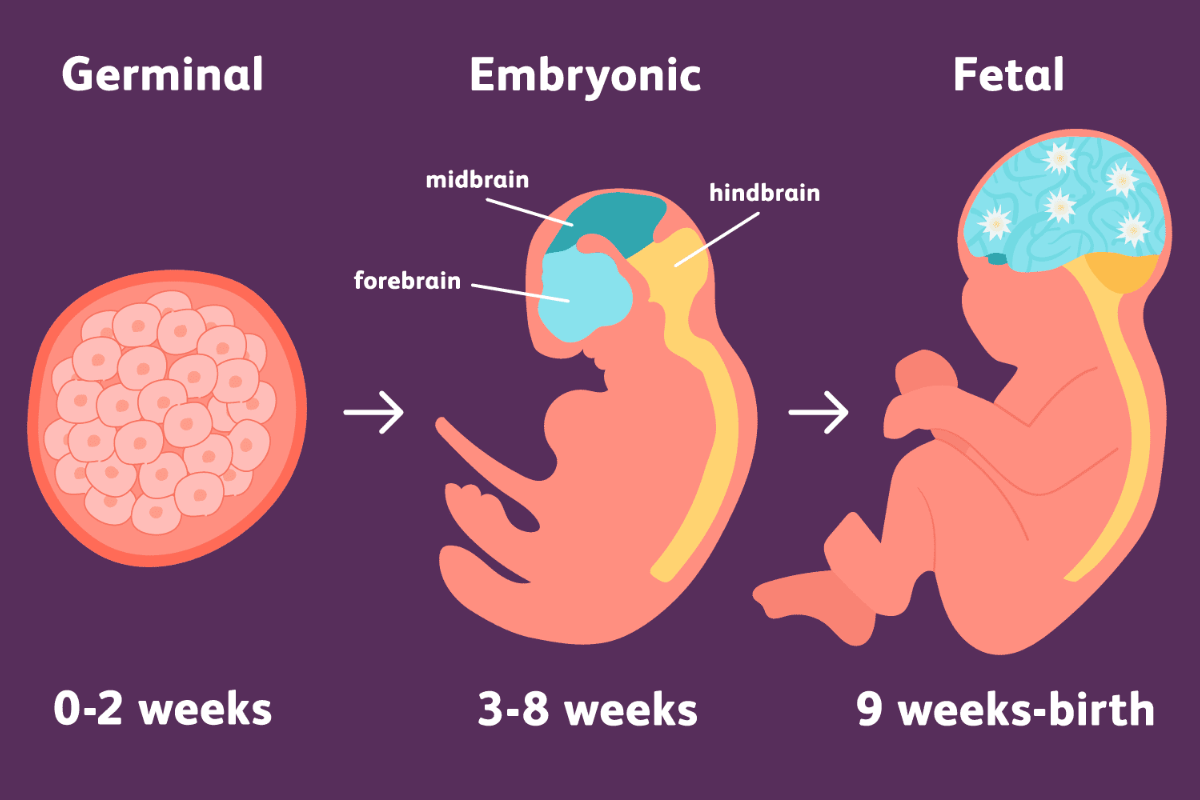
Fetal development isn't just about a growing belly—it's a beautifully complex orchestration of biology that transforms a single cell into a fully formed human being. And every step of the way, the mother's body acts as both protector and provider. Understanding how the fetus develops helps us see why even the smallest maternal choices—or challenges—can ripple into lifelong consequences for the child.
1. The Germinal Stage (Week 1–2)
Right after fertilization, the zygote begins dividing rapidly as it travels down the fallopian tube. Within days, it becomes a blastocyst—a fluid-filled cluster of cells—ready to implant into the uterine lining. While this stage is short, it’s critical. Failed implantation accounts for a large percentage of early pregnancy losses, often before a woman even knows she’s pregnant.
- Maternal impact: Hormonal balance is vital during this window. Factors like severe underweight, unmanaged thyroid issues, or high stress can interfere with implantation.
2. The Embryonic Stage (Week 3–8)
This is when the foundation of every organ system begins to form. The neural tube—future brain and spinal cord—closes by week 4. The heart starts beating by week 5. Limbs, facial features, and internal organs start taking shape. It’s also the period of highest vulnerability.
- Maternal influence: Nutrients such as folic acid, iron, and iodine are especially crucial now. The CDC recommends at least 400 mcg of folic acid daily to prevent neural tube defects, which develop during this exact time.
- Risk factors: Exposure to teratogens—such as alcohol, tobacco, certain medications, and environmental toxins—can cause irreversible damage. Infections like rubella during early pregnancy can result in congenital abnormalities.
3. The Fetal Stage (Week 9–Birth)
Once the major organs are in place, the fetus begins maturing. Muscles strengthen, the brain develops rapidly, and sensory organs become more responsive. By the third trimester, the fetus can hear external sounds, respond to light, and even practice breathing movements.
- Maternal influence: Diet continues to matter—a balanced intake of DHA, calcium, and protein supports brain and skeletal growth. Chronic stress or high cortisol levels in the mother can impact fetal weight and even alter the baby’s stress-response system.
- Birth weight as a marker: According to WHO, babies with low birth weight (<2.5 kg) are more prone to infections, delayed development, and non-communicable diseases later in life. Maternal malnutrition, anemia, or poor antenatal care are leading contributors.
Together, these three stages paint a clear picture: fetal development is deeply interwoven with maternal health. Every organ, every neural connection, every heartbeat grows in response to the mother’s physical and emotional world.
Epigenetics and Early Influences
Now, here’s where the science gets even more fascinating—and more urgent. Epigenetics, often described as the study of how your environment can “switch” genes on or off, is rewriting how we think about pregnancy.
A child might inherit their parents’ DNA, but how those genes are expressed—how they “behave”—can be shaped long before birth. Tiny chemical tags, called methyl groups, attach to genes and alter their activity without changing the DNA code. These tags are influenced by the mother’s diet, mental state, physical health, and even exposure to pollution or trauma.
Maternal Nutrition and Epigenetics
Studies have shown that nutrient availability during pregnancy can permanently alter the baby’s gene expression. For example:
- The Dutch Famine Study: Children born during the 1944–45 famine in the Netherlands had higher rates of obesity, diabetes, and heart disease later in life, likely due to fetal adaptations made to cope with scarcity.
- Micronutrients Matter: Deficiencies in folate, B12, and choline can affect DNA methylation, leading to changes in metabolism and brain development. A 2024 study in Nutrients showed that maternal diet could influence placental epigenetic markers associated with growth and immunity.
Stress and Emotional Well-Being
Chronic stress during pregnancy doesn’t just affect the mother—it programs the fetus, too.
- A recent 2024 study published in Clinical Epigenetics revealed that maternal stress is associated with epigenetic changes in genes linked to cortisol regulation in babies. This could make children more sensitive to stress throughout life.
Long-Term Implications
These early epigenetic marks can influence everything from mental health to immune function and even intelligence. While some of these changes are adaptive, helping the child survive in a harsh environment, they can also increase vulnerability to chronic diseases if the postnatal world doesn’t match the prenatal conditions.
Maternal Health: A Pillar for the Next Generation
Maternal health is foundational to the well-being of future generations. A mother's physical and mental health during pregnancy significantly influences her child's development and long-term health outcomes. Understanding the multifaceted aspects of maternal health, including nutrition, psychological well-being, and the broader socioeconomic and environmental determinants, is crucial for fostering healthier societies.
Impact of Maternal Nutrition
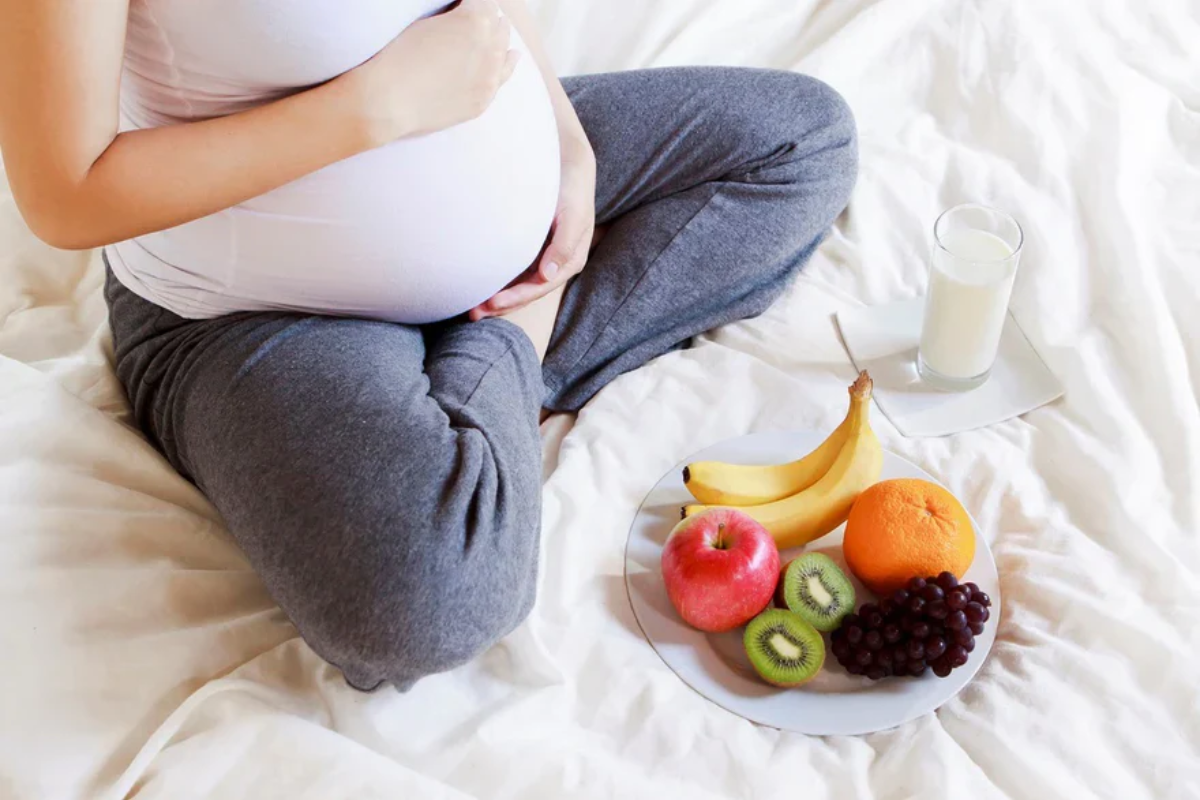
Proper nutrition during pregnancy is vital for fetal development and can have lasting effects on a child's health. The correlation between maternal diet and outcomes like birth weight and susceptibility to chronic diseases is well-documented:
- Birth Weight and Chronic Disease Susceptibility: Studies have shown a U-shaped relationship between birth weight and the risk of developing multiple chronic conditions later in life. Both low and high birth weights are associated with increased risks of conditions such as cardiovascular diseases and diabetes. This highlights the importance of optimal fetal growth, which is directly influenced by maternal nutrition.
- Nutrient Intake and Fetal Development: Adequate intake of essential nutrients like folic acid, iron, and omega-3 fatty acids is crucial. For instance, insufficient folic acid can lead to neural tube defects, while inadequate iron intake is linked to preterm births and low birth weights. A systematic review emphasized that poor maternal nutritional status is associated with adverse birth outcomes, underscoring the need for balanced diets during pregnancy.
Ensuring that expectant mothers receive proper nutrition before and during pregnancy is not only essential for preventing immediate complications but also for reducing the child's risk of chronic diseases in adulthood.
Psychological Well-Being of Expectant Mothers

The mental health of a mother during pregnancy plays a significant role in the neurodevelopmental and behavioral outcomes of her child:
- Impact on Brain Development: Elevated maternal stress levels have been linked to alterations in fetal brain structure and function. Research indicates that prenatal stress can lead to decreased hippocampal volume in offspring, a region critical for memory and emotional regulation. These structural changes can predispose children to cognitive impairments and emotional challenges.
- Behavioral and Emotional Consequences: Children whose mothers experienced high levels of stress, anxiety, or depression during pregnancy are at an increased risk for developing behavioral problems, attention deficits, and mood disorders. A comprehensive review highlighted that prenatal maternal stress is associated with a higher incidence of conditions such as ADHD and anxiety disorders in children.
Addressing mental health concerns during pregnancy through supportive interventions can mitigate these risks, emphasizing the need for comprehensive prenatal care that includes psychological support.
Socioeconomic and Environmental Determinants
In the United Arab Emirates (UAE), maternal and infant health outcomes are influenced by a complex interplay of socioeconomic and environmental factors. Beyond individual health behaviors, broader determinants such as access to quality prenatal care, health insurance coverage, and health literacy significantly impact these outcomes.
Access to Quality Prenatal Care

While the UAE has made substantial investments in healthcare infrastructure, disparities in access to prenatal care persist, particularly in remote and rural areas. Urban centers like Abu Dhabi and Dubai are well-equipped with medical facilities; however, women residing in less populated regions may face challenges in accessing specialized obstetric services.
This geographic disparity can lead to delayed initiation of prenatal care, increasing the risk of complications such as preterm births and low birth weights. Studies have shown that rural-dwelling women are significantly less likely to attend medical visits in the prepregnancy and postpartum periods, even when controlled for sociodemographic and clinical characteristics.
Health Insurance Coverage

Health insurance plays a pivotal role in facilitating access to prenatal care. In the UAE, medical insurance is mandatory for all residents, including expatriates. However, the extent of coverage can vary significantly. Comprehensive maternity insurance policies typically cover prenatal, postnatal, and neonatal care, but many plans have waiting periods and varying levels of coverage.
For instance, some maternity insurance plans start at approximately USD 116 per month for a 25-year-old female in Dubai, with waiting periods ranging from no waiting period to 24 months, depending on the provider. Without adequate coverage, the out-of-pocket expenses for prenatal and delivery services can be substantial, potentially deterring women from seeking timely care. Ensuring that all women have access to comprehensive maternity insurance is essential for equitable maternal health outcomes.
Health Literacy and Education

Health literacy, defined as the ability to obtain, process, and understand health information, is crucial for engaging in health-promoting behaviors and making informed decisions. A study conducted in the UAE found that approximately 71.6% of pregnant Emirati women possess adequate health literacy. However, this implies that nearly 28.4% may have limited health literacy, potentially impacting their ability to navigate the healthcare system, adhere to medical advice, and engage in preventive measures.
Lower health literacy levels have been associated with inadequate prenatal care utilization and poorer pregnancy outcomes. Addressing this requires targeted educational interventions to enhance health literacy among pregnant women, particularly those with lower educational backgrounds.
Socioeconomic Factors
Socioeconomic status, encompassing income and employment, significantly influences maternal health. Lower-income women may face financial barriers that limit their access to quality healthcare services, nutritious food, and safe living conditions, all of which are vital for a healthy pregnancy.
Employment status is closely linked to health insurance coverage and the ability to afford out-of-pocket healthcare expenses. Policies aimed at reducing economic disparities and providing financial support to low-income pregnant women can contribute to improved maternal and infant health outcomes.
Policy Implications and Recommendations
To address these disparities, a multifaceted approach is necessary:
- Enhancing Healthcare Accessibility: Investing in healthcare infrastructure in remote areas and implementing mobile health units can mitigate geographic barriers, ensuring that all women have access to quality prenatal care.
- Standardizing and Expanding Insurance Coverage: Policies should aim to standardize maternity insurance coverage, reducing waiting periods and ensuring comprehensive benefits for all women, regardless of employment status or nationality.
- Improving Health Literacy: Developing and implementing educational programs tailored to pregnant women, focusing on enhancing health literacy, can empower them to make informed decisions and engage in health-promoting behaviors.
- Addressing Socioeconomic Disparities: Implementing social support programs and financial assistance for low-income pregnant women can alleviate economic barriers to accessing quality prenatal care and maintaining a healthy lifestyle during pregnancy.
By addressing these broader socioeconomic and environmental factors, the UAE can further enhance maternal and infant health outcomes, promoting equity and well-being across all segments of its population.
Case Studies and Personal Narratives
When we talk about maternal health, it's easy to focus on statistics and medical guidelines. But behind every number is a mother—often holding onto hope through uncertainty, often carrying both a child and the weight of decisions that can affect generations. Real-life stories bring this reality closer, reminding us that maternal health is as much about courage as it is about care. In the UAE, where access to advanced healthcare meets a diverse population of residents, these stories are both inspiring and eye-opening.
Real-life Stories
1. Rania Fuad Alsheikh: Navigating Pregnancy with a Cancer Diagnosis
At just 26 weeks pregnant, 36-year-old Rania Fuad Alsheikh began experiencing alarming symptoms—intense fatigue, abdominal pain, and irregular bleeding. Doctors soon diagnosed her with colon cancer, a diagnosis that would shake anyone to their core. But Rania made a brave decision: she would continue her pregnancy while undergoing chemotherapy. Supported by her family and medical professionals in Abu Dhabi, she endured grueling treatments to give her child a chance at life. Against the odds, she gave birth safely and continues her own recovery journey. Her story is a reminder of how maternal health care must be flexible, compassionate, and patient-led because some pregnancies come with extraordinary challenges.
Source: Burjeel Medical City, Abu Dhabi
2. Dana’s High-Risk Pregnancy Journey Abroad
Dana, a UAE resident, faced a pregnancy complicated by multiple health issues that local physicians initially struggled to manage. Determined to ensure the safest possible outcome, she made the difficult decision to travel to Los Angeles, where she received specialized care for her high-risk pregnancy. After weeks of expert monitoring, Dana delivered a healthy baby. Her journey reflects both the privileges and dilemmas faced by women in the UAE—access to global care for those who can afford it and the need to strengthen local capabilities for high-risk maternal cases.
Source: Dr. Steve Rad Patient Stories
3. The Silent Struggle: Mental Health and Motherhood in the UAE
For many new mothers in the UAE, the postpartum period can feel like a free fall. Cultural expectations of resilience and perfection often mask very real struggles with anxiety, depression, and identity loss. According to a 2021 report, nearly 20% of new mothers in the UAE experience mental health issues during or after pregnancy. Many suffer in silence, unsure of where to turn. The lack of open dialogue around mental health in parenting communities often leads to delayed or no treatment at all. Local health campaigns are slowly making headway, but the emotional toll on new mothers remains an under-acknowledged crisis.
Source: Gulf News – The Motherhood Identity Crisis
Statistical Insights
Numbers matter because they reveal patterns. And in the UAE, those patterns show both progress and areas in need of urgent attention.
1. Antenatal Care Timing
A 2020 study revealed that only about 50% of pregnant women in the UAE begin antenatal care in the first trimester. This is a concern because early prenatal visits are critical for identifying complications, setting a nutritional plan, and educating mothers about fetal development. Delayed care may result from cultural beliefs, lack of awareness, or logistical barriers for some expat populations.
Source: PMC – Maternal Health Literacy in the UAE
2. Health Literacy Gaps
Research has shown considerable variation in health literacy levels among pregnant women in the UAE. A recent study published in the International Journal of Women’s Health emphasized that lower health literacy was associated with poorer self-care, irregular antenatal visits, and higher anxiety levels during pregnancy. This is particularly relevant in a multicultural society like the UAE, where language barriers, differing healthcare norms, and socioeconomic status all influence how women navigate pregnancy.
Source: Sage Journals – 2024 Study on Health Literacy in Emirati Women
3. Nutrition and Pregnancy Misconceptions
In-depth interviews and observational data have found that many expectant mothers in the UAE fall into the trap of the "eating for two" myth. This often leads to excessive weight gain, gestational diabetes, and complications during delivery. A 2020 Gulf News feature explained how cultural practices around food—while comforting—can sometimes contribute to poor pregnancy outcomes if not balanced with medical guidance.
Quote from the article:
“The biggest risk we’re seeing isn’t malnutrition but overnutrition—expectant mothers consuming too much without a nutritional plan. This can cause problems for both mother and baby, including larger birth weights and higher C-section rates.”
— Dr. Wafaa Ayesh, UAE Clinical Nutrition Expert
Together, these stories and numbers present a fuller picture: pregnancy in the UAE can be well-supported and safe, but gaps in awareness, mental health care, and early intervention still leave some women vulnerable. Listening to these voices and acting on this data is not just about improving services—it's about honoring the lives that are quietly shaping the next generation.
A Shared Commitment to Mothers and Newborns
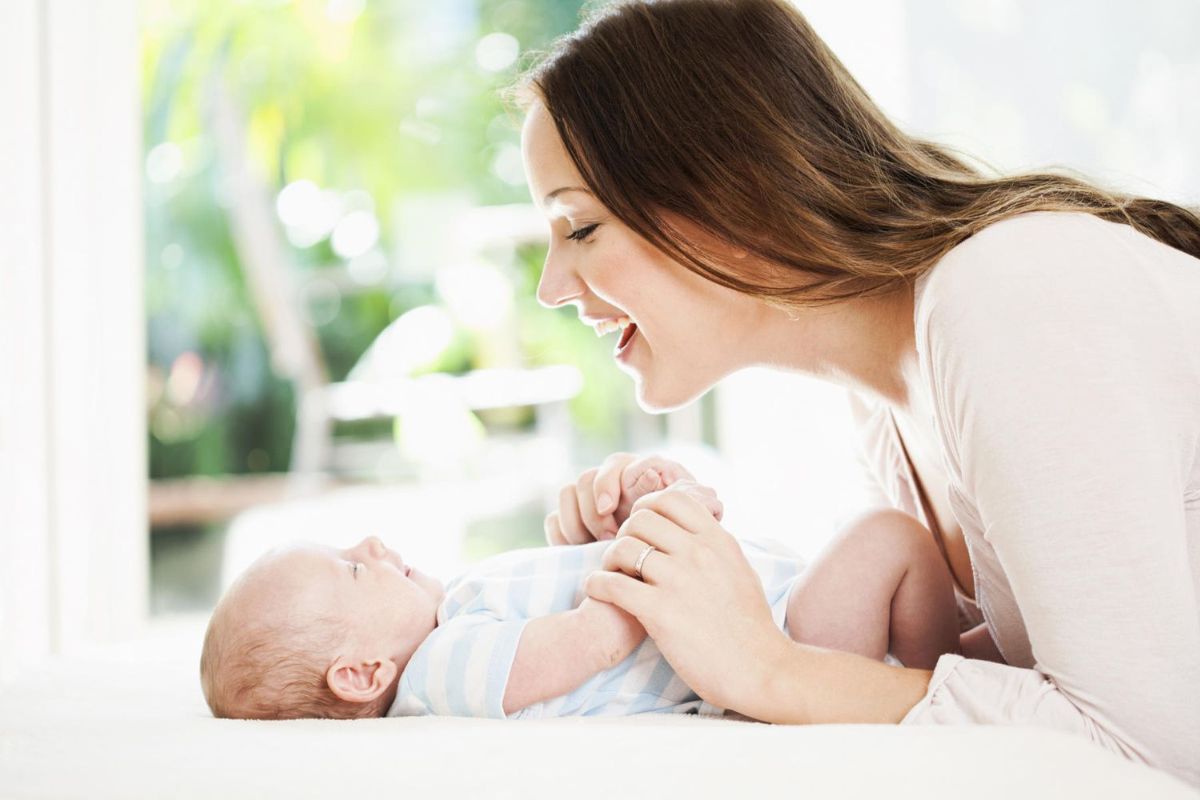
No woman should have to choose between bringing life into the world and risking her own. Yet, each year, too many mothers and babies across the globe face this silent risk—often without the care or support they deserve. As maternal mortality rates plateau and newborn deaths continue to account for nearly half of all child deaths, the urgency to act has never been clearer. But there is hope—in the form of collaborative, committed efforts from both global health authorities and nations like the UAE that are rewriting the future of maternal and newborn health.
A Global Wake-Up Call
At the center of this global call to action is the World Health Organization, whose theme for World Health Day 2025—“Healthy beginnings, hopeful futures”—sets the tone for a year-long campaign to reprioritize maternal and neonatal well-being. According to the WHO and UNICEF, maternal and newborn deaths have shown little improvement since 2015. Approximately 290,000 women still die every year due to complications of pregnancy or childbirth, and 2.3 million babies do not survive their first month. On top of this, there are an estimated 1.9 million stillbirths annually(Unicef), most of which could be prevented with timely, quality care.
The WHO is responding with targeted goals: improve early access to antenatal care, address inequalities in service delivery, invest in healthcare systems that support women, and promote respectful, dignified care in all birth settings. Beyond access, WHO is focusing on quality—ensuring that medical services are not only available but delivered with compassion, safety, and continuity.
Global strategies such as Ending Preventable Maternal Mortality (EPMM) and the Quality of Care Network are already influencing how countries set national health agendas. These frameworks stress equity and human rights, emphasizing that no mother or baby should be left behind—regardless of geography, income, or status.
UAE’s National Response: Turning Policy Into Practice
Here in the UAE, the commitment to maternal and newborn health has been visibly growing. As a country with a rapidly developing healthcare infrastructure and a diverse population of residents, the UAE has made strategic efforts to ensure that maternal well-being is supported both medically and socially.
In 2024, the Ministry of Health and Prevention launched the National Policy for the Promotion of Women’s Health, a landmark initiative aimed at strengthening women’s health across all life stages. This policy is rooted in multi-sectoral collaboration and includes pillars such as:
- Comprehensive reproductive and maternal care (pre-pregnancy to postpartum)
- Mental health support for expectant and new mothers
- Prevention of chronic diseases among women
- Protection from gender-based violence
- Research and innovation in women’s health
It reflects the UAE’s evolving understanding of what it truly means to support maternal health—not just by improving survival rates but by enhancing quality of life.
Meanwhile, on a practical level, programs like the Maternal and Child Health Program by the Abu Dhabi Public Health Centre provide routine prenatal screening, education, and postnatal support. These services are designed to be accessible to both Emirati and expatriate mothers, offering regular follow-ups and personalized care pathways based on each woman’s health profile.
Maternity Leave, Insurance, and More
Legislation has also evolved to support women’s health beyond the hospital. Working mothers in the UAE are entitled to 60 days of maternity leave (45 days fully paid and 15 days half-paid), with the option of an additional 45 days of unpaid leave in case of health complications. These policies are vital in allowing new mothers time to recover physically, adjust emotionally, and bond with their newborns.
In 2025, the UAE also introduced mandatory health insurance for private sector workers and domestic employees across the Northern Emirates, expanding access to affordable healthcare for populations previously underserved. This includes basic maternal care coverage, which is critical for early diagnosis and continuous monitoring during pregnancy.
The combined efforts of organizations like the WHO and proactive nations like the UAE send a powerful message: if we want a healthier world, we must start at the very beginning. That means not only ensuring survival but also nurturing dignity, equity, and support for every mother and child. When a society invests in mothers, it invests in its future.
We often think of the future as something distant—a horizon we work toward, a dream waiting to unfold. But the truth is, the future begins in the quiet, unseen space of a womb. It starts in the heartbeat of a mother who’s both growing a child and carrying a world that doesn't yet know their name.
The health of a child doesn't begin on their first birthday or even their first breath. It begins in the choices we make today—about compassion, about care, about who gets to be well and who is left waiting. It begins in how we treat the unseen, the unheard, the unborn.
We are all, in some way, caretakers of tomorrow. Not just doctors or mothers or policymakers—but communities, neighbors, strangers passing each other in silence. Our shared responsibility lies in creating a world where no mother wonders if she'll survive childbirth and where no child begins life with less simply because of where they were born or how much their mother knew.
Healthy beginnings are not medical miracles. They are human choices—made in boardrooms and hospitals, in households and hearts. And when those choices are rooted in dignity, equity, and empathy, they become something greater than policy.
They become a promise.
Let’s keep that promise.
Also read:

